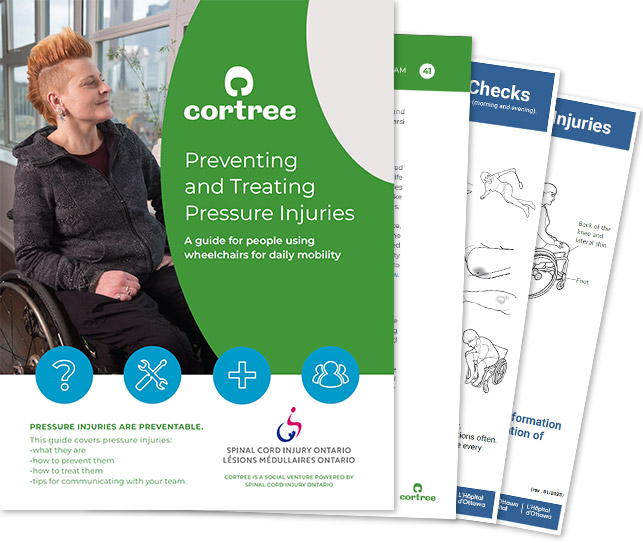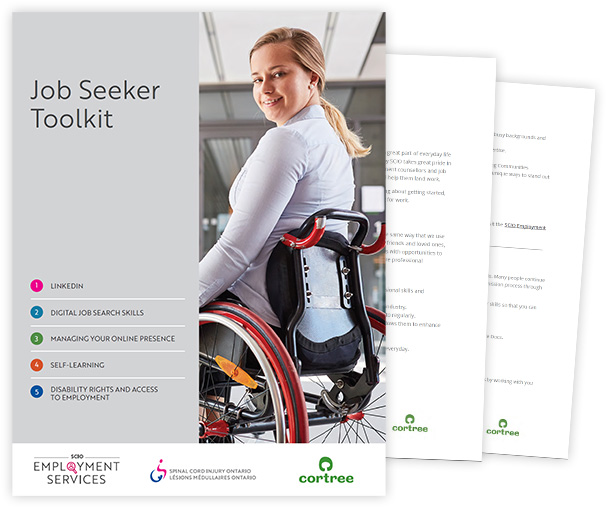
Disability Support
Disability Support Programs in Canada
With all the daily barriers that you face if you have a disability, it can be hard to find the time or energy to make sense of the different types of disability support that could be available to you.
Luckily, there are a number of great disability support programs that are designed to assist you and your loved ones with handling the financial strains that result from being unable to work regularly.
This page focuses on the Ontario Disability Support Program (ODSP) and how to access it. We’ll also touch on different ways the government is helping people with disabilities save money, how to apply for a disability support worker (often referred to as a Personal Support Worker or attendant), as well as some other economic benefits for people with disabilities offered through the Government of Canada.
If you’re looking to learn about the Canada Pension Plan (CPP) disability support pension, the Disability Tax Credit (DTC) and how these forms for disability support can be used to help you, click the link below.
What Disability Support Services are Available to Me?
There are a number of great disability support services available in Canada, like the CPP disability support pension, but sometimes those services aren’t enough on their own to cover your costs of living
In these scenarios, you may be eligible to apply for the Ontario Disability Support Program (ODSP), which is considered a ‘program of last resort’. This means, in order to be eligible, you must have requested assistance from all other avenues, such as:
- The Workplace Safety and Insurance Board (WSIB)
- A job (if you are able to work)
- CPP Disability Benefits
In addition to this, there are additional requirements that must be met. You must be:
- 18 years of age or older
- In financial need
- Live in Ontario
- A person with a disability, as defined under the ODSP Act (meaning your disability has a serious impact on your ability to work, take care of yourself or take part in the community)
You may be eligible to apply for the ODSP, even if you are working part-time and are already receiving CPP Disability Benefits. This disability support is designed to supplement your income if these other economic resources aren’t enough to cover your monthly costs.
If you’d like to apply for the Ontario Disability Support Program, you can find the online application form here.
Do I need a Disability Support Worker?
Throughout the day, you may need assistance with various activities of daily living; such as bathing, getting dressed or with transfers. If your needs change and you require more support, a disability support worker (also known as a Personal Support Worker or attendant) can assist in areas you’re struggling to manage by yourself.
If you find yourself in this position, it’s good to start by creating a timetable of what you’d like your week to look like. This involves listing major daily milestones like meals, errands or even pleasant activities like spending time outside.
After you’ve listed everything, look through and see what parts of your weekly schedule might require assistance. With a clear idea of how much help you might need in a given week, and what your monthly budget can support if you will be hiring privately, it’s time to begin looking for a disability support worker.

Finding a Disability Support Worker
1
Now that you know roughly how many hours of support you’ll need on a weekly basis, there are two avenues for looking for a disability support worker: funded services and hiring privately. Funded services are available through Home and Community Care Support Services or funded Attendant Service providers. To find the Home and Community Care Support Services in your area go to http://healthcareathome.ca/ and enter your postal code. This will give you the information you need to contact them.
2
If you receive Direct Funding or have the financial means to hire your own workers, you can search for a disability support worker that fits your budget and can accommodate the hours of service you need.
3
There are a number of places you can begin looking for these workers, but it’s a good idea to talk with other people that have already hired a disability support worker to find out about their experience. They may be able to guide you towards the place where they had success finding a worker.
4
Once you’re ready to look for candidates, start searching through popular hiring platforms like Indeed and Workopolis to find qualified disability support workers (also known as PSWs or attendants) in your area.
REMEMBER: Always be transparent about what you’re looking for, and how many hours per week you require assistance. The clearer your expectations and budget are prior to starting your search, the easier it will be for you to find the assistance you need.

Living with a Disability Shouldn’t Stop You from Saving for Your Future
The financial challenges facing people with disabilities can make it hard to save money. However, there are some ways that the Government of Canada is providing resources to help you save, such as the Registered Disability Savings Plan (RDSP) and the Canada Disability Savings Grants and Bonds.
The RDSP is a savings plan designed to help save money for your future, while the Grants and Bonds are government contributions to your RDSP as a form of disability support.
The Canada Disability Savings Grant is a matching grant; meaning that the Government of Canada will contribute to your RDSP, helping you save more quickly. In fact, these grants are available up to 300 percent, which could make a huge difference to what you’re able to put away in your RDSP.
The Canada Disability Savings Bond is available for low and modest earning Canadians with disabilities, which could see a grant of up to $1,000 a year to add into your RDSP.
Additional Disability Support Resources
In addition to wide-reaching resources like the CPP disability support pension, the Ontario Disability Support Program and the RDSP, there are some other disability support resources available.
Education Funding
If you have a permanent disability, there are some services available to assist with the costs of furthering your education.
There are grants for students with disabilities, as well as services and equipment required to attend school. As well, there is a student loan program specifically designed to assist you if you have a disability.
Information on these individual resources, eligibility and how to apply can be found here.
Federal Excise Gas Tax Refund
In the case that your disability is a permanent mobility impairment, and you’re unable to use public transportation, this disability support could benefit you.
You’ll need a qualified medical practitioner to certify your mobility impairment in order to apply. If you’re accepted you could receive a refund on part of the federal excise tax you pay when you purchase gasoline for your vehicle.
Disability Support for Veterans
If your disability is a result of your time in the service, you may be eligible for these disability benefits through the Veteran Affairs of Canada.
This could be provided in the form of pain and suffering compensation, or as a disability support pension. While pain and suffering compensation can be made available as a lump-sum payment, both of these resources can be offered as a life-time monthly benefit designed to assist you and your dependents.
How Do I Find Disability Support Near Me?
As you can see, there are a wide range of supports provided by the Government of Canada.
Finding local resources for disability support can be more challenging, and sometimes can make you feel overwhelmed. But don’t worry! Cortree is here to help.
Reach out to us, and we can help direct you towards services and resources that can help. We also have a great variety of disability education and training courses, which can be a fantastic learning tool for you and your loved ones to find new ways to make everyday life more accessible.

